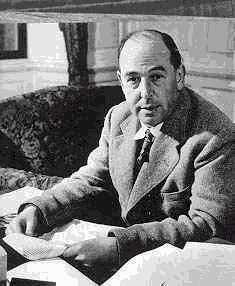My post is going to be a little different today.
Many who read these daily ponderings share my Christian faith, but I’m sure there are many who do not. Perhaps some are more focused on the political commentary and may even be a little impatient when I deviate from that to concentrate specifically on the Biblical worldview that undergirds all my perceptions on politics and government.
Well, today I’m really going to deviate. Some of you may find this marginally strange, but I’m proceeding regardless.
My faith is not just a civil religion; neither is it a formalized ritual bound in tradition. I do believe it applies to civil society and, as a historian, I don’t reject tradition; I know it is important.
Yet if the Christian faith consisted of mere externals or was simply an intellectual assent to a creed, it would be a dead religion, lacking the sense of the presence of God. I believe that the Lord is very near, seeking to lift the veil from our eyes anytime we are willing to open our spiritual eyes, ears, and heart to His nearness.
We are told in Scripture that the Holy Spirit resides within each believer, and that this Spirit will reveal the things of God. The apostle Paul relates an experience in which he said he was caught up into the third heaven—whatever that might be—where he saw things he could not describe. Each believer has the same Spirit within that revealed such things to Paul. I don’t expect to be caught up in the same manner, but I do expect to have moments when that which awaits the believer once this life is over becomes more real.
I had such an experience the other night. As Paul said, it’s hard to describe. It wasn’t a vision, just a quickening of my spirit that allowed a glimpse into what heaven might be. What did I sense? First, how God is the author of all beauty, and how we catch images of that beauty here on earth—in a smile, a look, aspects of the creation—you name it. Then I saw so clearly how man distorts and uglifies all true beauty, and how grievous all such distortions are. Finally, I caught one of those glimpses: the essence of how beauty will appear in His presence, and it was glorious.
I drifted off to sleep with that image in my mind.
 Reflecting on that experience later in the day, I was reminded of a comment made by C. S. Lewis, one of the foremost Christian thinkers of the past century. In a sermon he gave entitled “The Weight of Glory,” he helps tear away that veil and forces us to think in a way we might not ordinarily when he says:
Reflecting on that experience later in the day, I was reminded of a comment made by C. S. Lewis, one of the foremost Christian thinkers of the past century. In a sermon he gave entitled “The Weight of Glory,” he helps tear away that veil and forces us to think in a way we might not ordinarily when he says:
It is a serious thing to live in a society of possible gods and goddesses, to remember that the dullest and most uninteresting person you can talk to may one day be a creature which, if you saw it now, you would be strongly tempted to worship, or else a horror and a corruption such as you now meet, if at all, only in a nightmare.
All day long we are, in some degree, helping each other to one or other of these destinations. It is in the light of these overwhelming possibilities, it is with the awe and the circumspection proper to them, that we should conduct all our dealings with one another, all friendships, all loves, all play, all politics.
There are no ordinary people. You have never talked to a mere mortal. Nations, cultures, arts, civilisations—these are mortal, and their life is to ours as the life of a gnat. But it is immortals whom we joke with, work with, marry, snub, and exploit—immortal horrors or everlasting splendours.
We are earthbound and spend most of our time on things that will pass away. While it is important that we spend that time and try to bring as much of God’s kingdom as possible into this earth, the ultimate reality—that which is eternal, not temporal—is in a relationship with the One who made us, grieves over our sins, sent His Son to die for us, and then resurrected Him that we might walk in newness of life.
My sincere prayer is that all who read this will come to know that ultimate reality and, along the way, catch a few glimpses of what truly awaits those who love Him.
